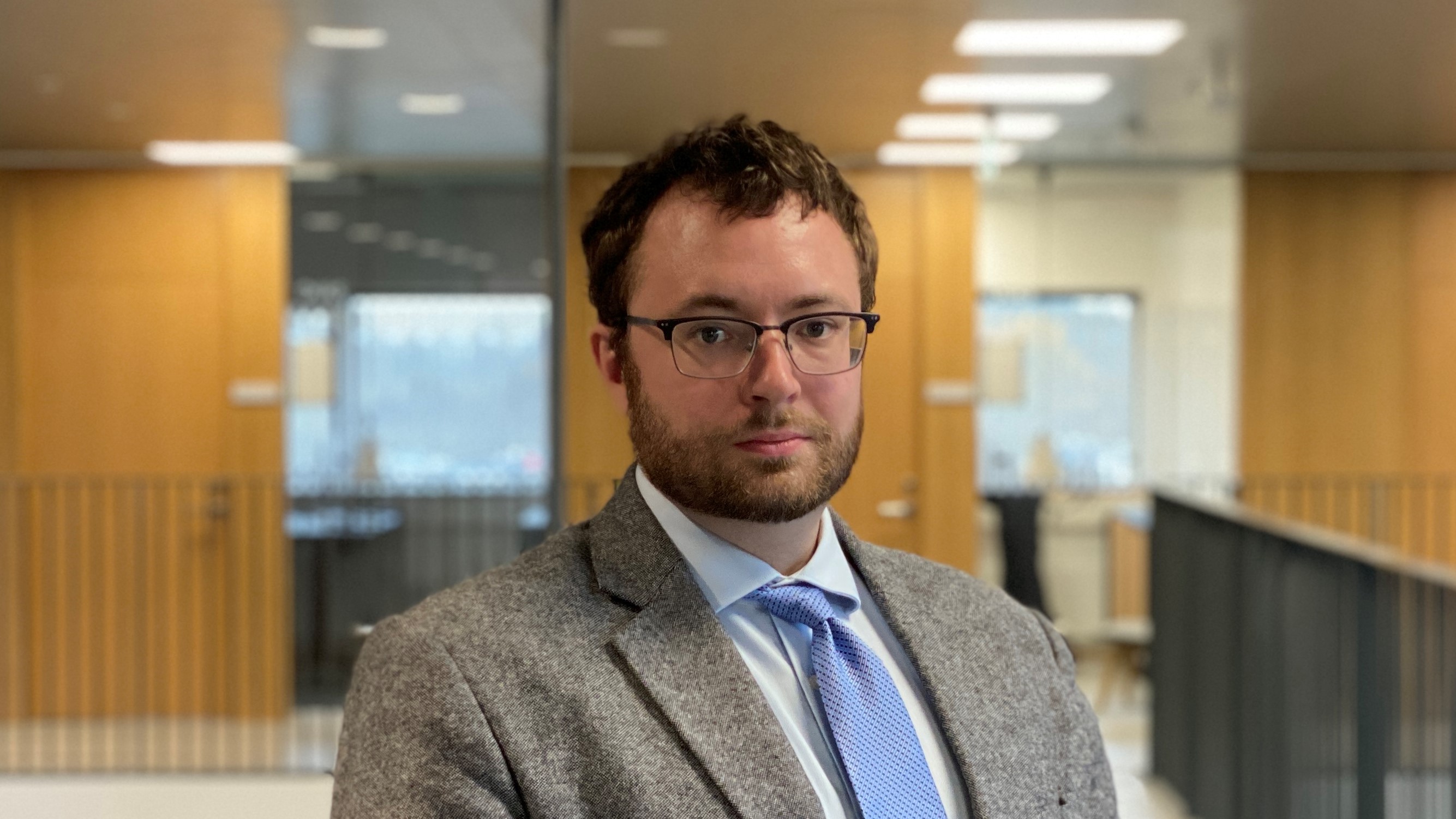
Having the freedom to follow my ideas in an analytical way is a great privilege
Newly named DIAS fellow Lasse Aaskoven wishes for his research to have the potential to better inform public debates about policy issues.
He missed it.
Lasse Aaskoven, Associate Professor at the Department of Political Science and Public Management at SDU, had a sabbatical away from political science research for almost two years, where he worked at a Danish ministry.
But he felt something lacking:
- I missed the analytical aspect of my work life. I didn’t feel like I was using my educational background. I found out that I liked doing research and generally having the intellectual stimulation that comes from being in academia. Since I also enjoy teaching, I have attempted to pursue an academic career ever since, Lasse Aaskoven says.
He left the ministry and applied for at Ph.D., which he got from University of Copenhagen in 2018, and now he has had work published in journals like European Journal of Political Research, Comparative Politics, Political Studies. This year, he also became a DIAS fellow.
- Being a researcher, I get to follow my ideas. Having the freedom to do so in an analytical way is a great privilege. I get to try to figure out how things are connected. It is very intellectually stimulating, and it is one of the reasons I really enjoy my work, Lasse Aaskoven says.
Female civil servants and German refugees
Right now, he is working on two larger research projects.
The first one focuses on female civil servants working in the central administration in Denmark, particularly if women are more or less likely to receive promotions working under left-wing compared to right-wing government coalitions.
- Women are typically underrepresented at the highest leadership level both in the public and private sector. We are interested to find out if it is an advantage or not to be male working under a left-wing compared to right-wing government. And if we find and effect, why is it so?
Moving away from modern day politics, Lasse Aaskoven is invested in another project, where he wishes to examine whether the German refugees present in Denmark after World War II affected how Danes viewed Germans in general afterwards.
- There were 200.000 thousand German refugees in Denmark after the war, but they were all gone in 1949. What were the long-term consequences for the way the Danes thought about Germans? And does it matter if you lived in an area with German refugees or not?
So far, he and his group has found evidence that older Danes living in areas with a previous large presence of German refugees had a more negative view of Germans in general in the 1970’s.
Better informing public debate
As a DIAS fellow, Aaskoven hopes to meet scholars from other disciplines that are perhaps at different stages at their career with different backgrounds and knowledge.
When asked to assess the societal impact on his research, Lasse Aaskoven underlines that this is difficult within the social sciences.
- I hope at least some of my research will have potential to better inform public debates about policy issues, he says.
When he is not working, Aaskoven, who lives in Copenhagen and commutes to SDU, likes to spend time with his girlfriend, to cook good food, and then he also enjoys playing miniature war games.
About Lasse Aaskoven
- Lasse Aaskoven received his Ph.D. from the Department of Political Science at the University of Copenhagen in 2018.
- He was previously a Lecturer (Assistant Professor) at the Department of Government at the University of Essex.
- Now, he is an Associate Professor at the Department of Political Science and Public Management at the SDU.
- His research spans several areas in comparative politics and comparative political economy. One of his main research topics is how fiscal institutions, such as fiscal rules, impact national politics in both democratic and non-democratic countries.